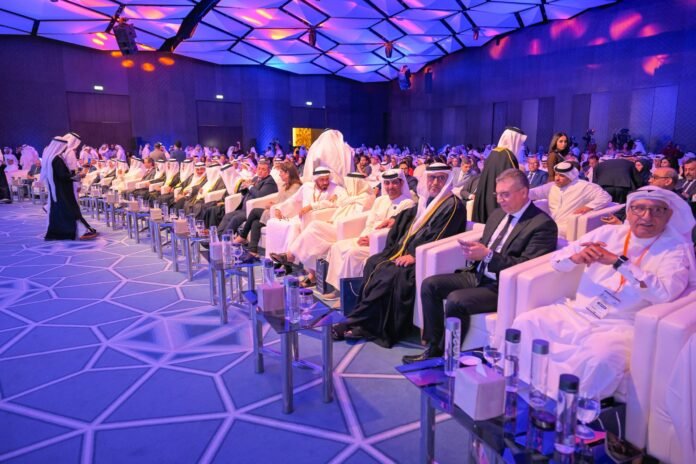The 20th Arab Media Forum wrapped up with five panel discussions focused on crucial media-related topics. These sessions explored psychological behavior, women’s media image, professional laws, and the impact of social media.
The first session, titled “Psychological Behavior in Media and Social Media,” featured psychiatrist Dr. Mohab Mujahid and journalist Mustafa Al-Agha. Hosted by broadcaster Rahaf Al-Sawalha, the session delved into how deeply media connects with human psychology.
The speakers emphasized that media goes beyond news and entertainment. It shapes awareness and influences emotions. Dr. Mujahid described “manufactured controversy” on social platforms as a rising addiction. Some users, he noted, seek attention by sparking debate or shock.
He reminded attendees to challenge ideas, not personal identities. Differences in opinion, he added, should never lead to conflict. This discussion highlighted one aspect of media transformation in the Arab world.
The second session, “Journalism: A Profession Without End,” examined journalism’s evolution amid digital shifts. Speakers included Mahmoud Al-Mamlouk of Cairo 24 and Rashid Al-Hamar of Bahrain’s Al-Ayam newspaper. Sultan Al-Qahtani from Riyadh Post moderated the session.
Al-Mamlouk spoke about the intense competition between digital journalism and social platforms. He urged traditional media to adapt quickly. Al-Hamar emphasized the importance of impactful digital content.
Titled “Women and Media: Image and Professionalism,” the third session gathered prominent Arab women. Participants included Egypt’s former Information Minister Dr. Doria Sharaf El-Din, UAE Journalist Association President Fadila Al-Maeini, and Kuwaiti academic Dr. Samar Baqer.
They discussed the growing female presence in leadership roles and how this reflects media transformation in the Arab world. The speakers credited cultural shifts, education, and gender equality policies for this progress.
The fourth session tackled “Media Laws and Social Media Regulations.” Legal experts Dr. Mohammed Abu Shaqqa and Dr. Hussein Al-Abdullah participated. They affirmed that Arab constitutions protect freedom of speech.
The speakers highlighted the importance of responsible expression. Every user, they said, must honor societal values and respect human dignity. Such legal awareness is key in managing media transformation in the Arab world.
The forum closed with a session titled “Media: Message and Morals,” featuring Islamic preacher Mustafa Hosni. Moderator Madi Al-Khamis led the discussion. Hosni urged media professionals to anchor their work in faith, humility, and purpose.
He reminded them that impact should never overshadow responsibility. Even as media evolves, values must remain central. His message concluded a forum dedicated to charting the path of media transformation in the Arab world.


